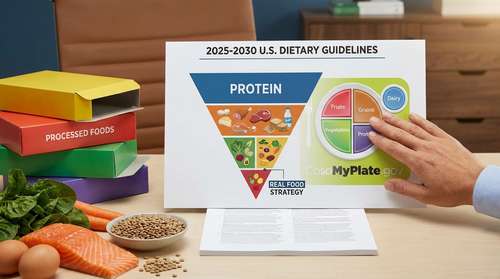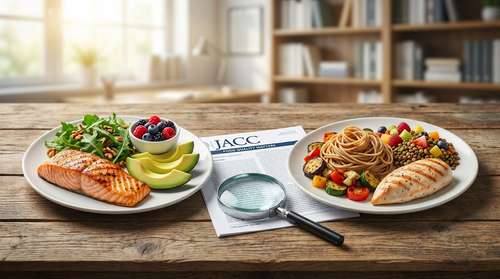Longevity and good quality of life are two universal desires that unite people of all races, classes, and creeds. As medical advancements increase the average life expectancy, the focus has shifted from just living longer; people now want to live healthier too!
But here is the thing: healthy aging is not only the absence of (terminal) disease; it has to do with physical, mental, and social well-being. At the center of all these is nutrition.
Understanding nutrition for healthy aging can make your years truly golden, and here's all you need to know:
Understanding the Aging Process
Aging is a natural, gradual, and inconsistent process, loosely associated with biological age.
Aging is caused by the accumulation of cellular and molecular damage over time, leading to a reduction in various bodily functions. This decline affects systems in the body, and those for nutrition are not spared. For instance, digestion and absorption become less efficient hence affecting the body's ability to extract nutrients from food.
Also, aging is often followed by specific conditions that directly impact nutritional status such as sarcopenia, the age-related loss of muscle mass and function.
Sarcopenia is the leading cause of frailty. It begins around the age of 30 and leads to loss of muscle mass which accelerates after age 60.
Benefits of Balanced Diet For Seniors

Healthy eating habits for aging adults becomes important as one ages. To have a fully balanced diet, both macronutrients and micronutrients are of equal importance.
Macronutrients
Macronutrients are materials that the body needs in large quantities. Examples are protein which is the building block of muscles, healthy fats like omega-3 fatty acids which are necessary for brain and heart health and carbohydrates to provide energy levels, regulate blood sugar, and support digestive health.
Micronutrients
Micronutrients are nutrients needed in small quantities, especially to supplement senior dietary needs. They include vitamins and minerals, and play equally important roles. Vitamin D, for example, is important for bone health and immune function, while vitamin B12 is plays a role in the health of nerves and red blood cell formation.
It's important to note that micronutrient deficiencies are widespread among older adults, with estimates suggesting that over 35% of individuals over 50 in Europe, Canada, and the USA are deficient in at least one micronutrient.
Dietary Strategies for Healthy Aging
To address senior dietary needs, various dietary strategies have emerged over the years. These include:
Personalized Nutrition
Personalized nutrition involves the creation of a nutrition plan after taking several factors into account such as genetics, health conditions, lifestyle, and preferences. This approach is effective because it understands that one-size-fits-all dietary advice may not be effective and discourages healthy eating habits for aging adults.
Reformulation
Reformulation is the act of improving the nutritional profile of existing food products to make them healthier for older adults. This involves reducing sugar, salt, and unhealthy fats, while increasing fiber, vitamins, and minerals.
Protein Diversification
Protein, one of the three major ‘macronutrients’, is undoubtedly an important part of a healthy diet, involved in crucial biochemical functions of the human body including growth, development, and tissue repair. However, with a growing population, current production and consumption habits have become unsustainable, and some alternatives are not as healthy as they set out to be.
Mediterranean Diet
The Mediterranean diet, which is one of the healthiest dietary patterns, is an example of a diet that allows healthy aging. It emphasizes whole, unprocessed foods, rich in fruits, vegetables, whole grains, legumes, nuts, olive oil, and fish, while reducing red meat, processed foods, and sugary drinks.

The Mediterranean diet helps reduce the risk of heart disease, stroke, type 2 diabetes, certain cancers, and Alzheimer's disease.
Education and Learning
Providing the necessary resources and information for people to feel empowered in their dietary decision-making is also a key route to improving healthy aging.
While there is no standardized approach to embedding food and nutrition in school curriculums, some countries are thought to be leading the way, ensuring nutrition is taught as a standalone topic from a young age. Norway, for example, focuses on food as a cardinal topic, whereas other countries include food in parallel with other subjects that have a different central learning focus.
Challenges Faced in Healthy Nutrition for Aging Adults
While healthy aging through nutrition is important, there are several challenges that need to be addressed to ensure its effectiveness and accessibility . Some of them include:
Sensory Impairments
Sensory impairments such as diminished taste and smell, can impact food enjoyment and potentially lead to nutritional deficiencies.
Oral Health Issues
Oral health issues like tooth loss, gum disease, and denture discomfort make chewing difficult leading to restricted food choices and increasing the risk of nutrient imbalance.
For example, fresh fruits, vegetables, nuts, and lean proteins often require more chewing, so seniors with oral discomfort may opt for softer, processed foods that are easier to eat but often lack vital nutrients.
Loss of Mobility
Reduced mobility limits seniors' access to grocery stores and their ability to prepare meals, resulting in reliance on processed foods that lack essential nutrients.
Limited Access to Healthy Food Options
Limited access to healthy food options particularly in certain communities, can pose a significant barrier to adopting healthier dietary patterns.
Misinformation about Nutrition
Finally, misinformation about nutrition can mislead individuals, leading to potentially harmful dietary choices.
Social Isolation
Finally, social isolation can further impact dietary habits, as eating alone may reduce motivation to prepare balanced meals, leading to poor nutrition over time.
Key Takeaways

As we strive to live longer and healthier lives, nutrition plays a significant role; hence, understanding the impact of aging on nutritional needs, taking on dietary strategies, and being aware of the challenges in meeting senior dietary changes is important.
A balanced diet, rich in protein, healthy fats, complex carbohydrates, and essential vitamins and minerals, forms the foundation for healthy aging. Also, personalized nutrition strategies, reformulated food products, protein diversification, and the principles of the Mediterranean diet offer targeted solutions for enhancing nutritional intake and preventing age-related decline.




